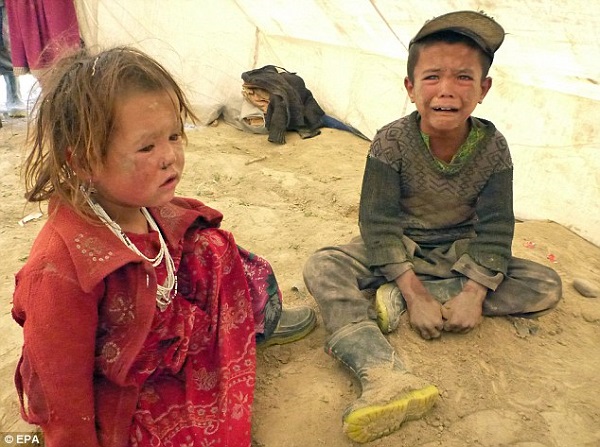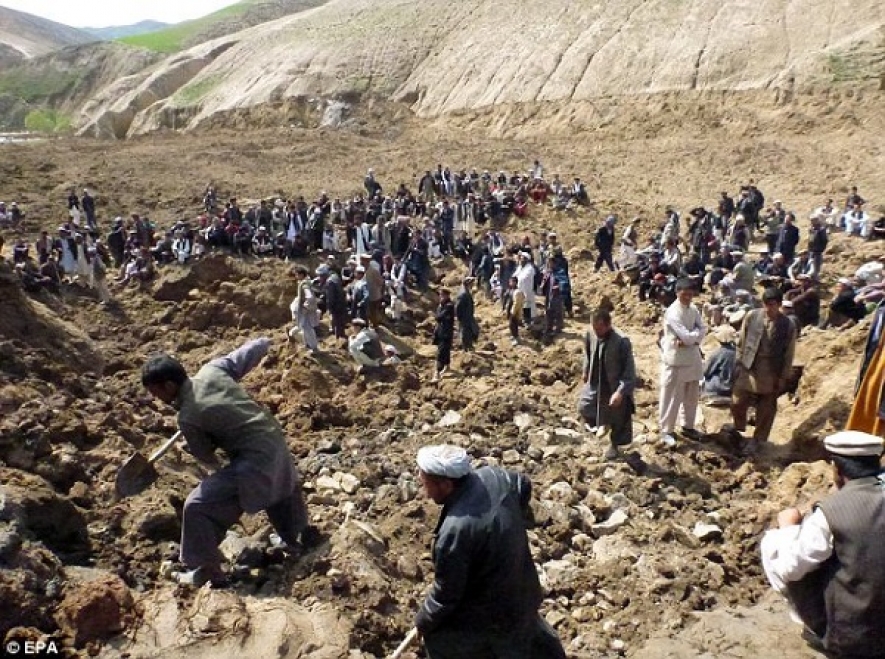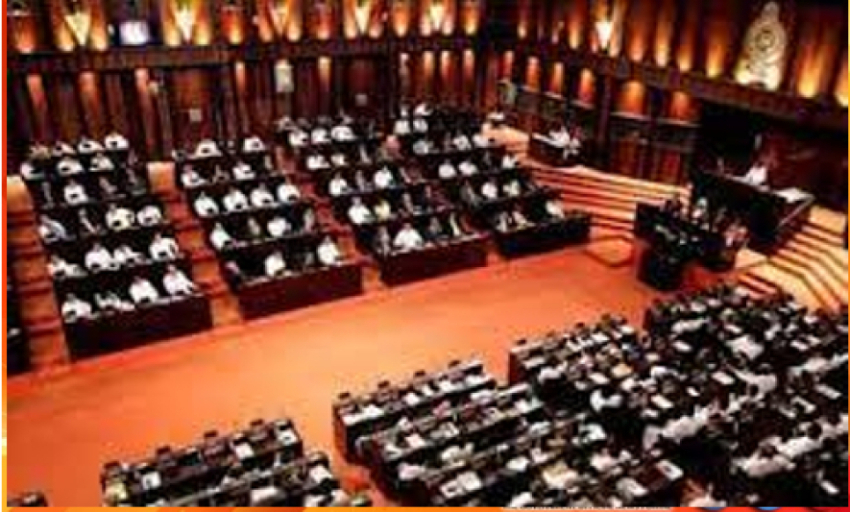Local officials fear that more than 2,000 people are dead, entombed in a blanket of earth nearly 30 feet deep. Officials are expected to designate the site, in the remote village of Abi Barak in Badakhshan Province, a mass grave.
“There is no hope for those buried under the mud to be rescued,” said Mohammad Zikeria Sawda, a member of Parliament from Badakhshan, who visited the area on Saturday.
President Hamid Karzai declared Sunday a national day of mourning and ordered all flags flown at half-staff. He also asked that Afghan citizens, businesspeople and aid groups come to the assistance of those affected by the landslides, calling the episode a “human tragedy.”
But the exact number of dead remained unknown a day after the initial landslides. Whole portions of Abi Barak have been buried by landslides, freezing entire families in place beneath it and thwarting efforts to claw people out. It appeared that almost half of the mountain had simply fallen on top of Abi Barak.
The possibility that yet another chunk of earth might cleave from the nearby mountain kept rescue workers on high alert.
The fear was not idle. Among the houses buried beneath the mud on Friday was one where a young couple had just been married, local officials told television news stations. When neighbors rushed to the scene, a second landslide trapped the would-be rescuers as well.
“It buried so many families, including the house where the wedding party was going on,” said Hajji Sayedi, the district governor of Argo, where the village is. “When others rushed to rescue those trapped under the mud, another landslide went through the village, burying all those who came to help.”
Thousands of residents from the area have been evacuated from their homes. Aid agencies were mobilizing assistance throughout Saturday, with United Nations staff members coordinating the distribution of food, water and blankets and arranging for emergency shelter for the homeless.
Officials said that about 500 villagers from the surrounding area were handed shovels and pickaxes to work alongside soldiers and others to unearth the bodies.
A shipment of 60 tons of food arrived Saturday from neighboring Kunduz Province, welcome relief for the thousands of villagers along the perimeter of the disaster site. A high-level delegation of Afghan officials also flew to the affected region on Saturday morning. Along with tents, the delegation delivered blankets and cash — up to $1,000 for each dead family member, officials said.
Afghanistan’s second vice president, Karim Khalili, expressed deep condolences at the site of the disaster and promised that the government would continue to do all it could to assist the survivors. He said 230 tons of wheat and flour had been delivered by the Ministry of Rural Rehabilitation and Development.
Different organizations have been trying to compile a list of the missing, with some estimates as high as 2,700. But with the village buried under as much as 200 feet of mud at the deepest points, it may be impossible to ever recover many bodies.
“We will offer the funeral prayers for those buried in the mud in absentia,” said the Badakhshan Province governor, Shah Waliullah Adeeb. “There is nothing else we can do.”





















